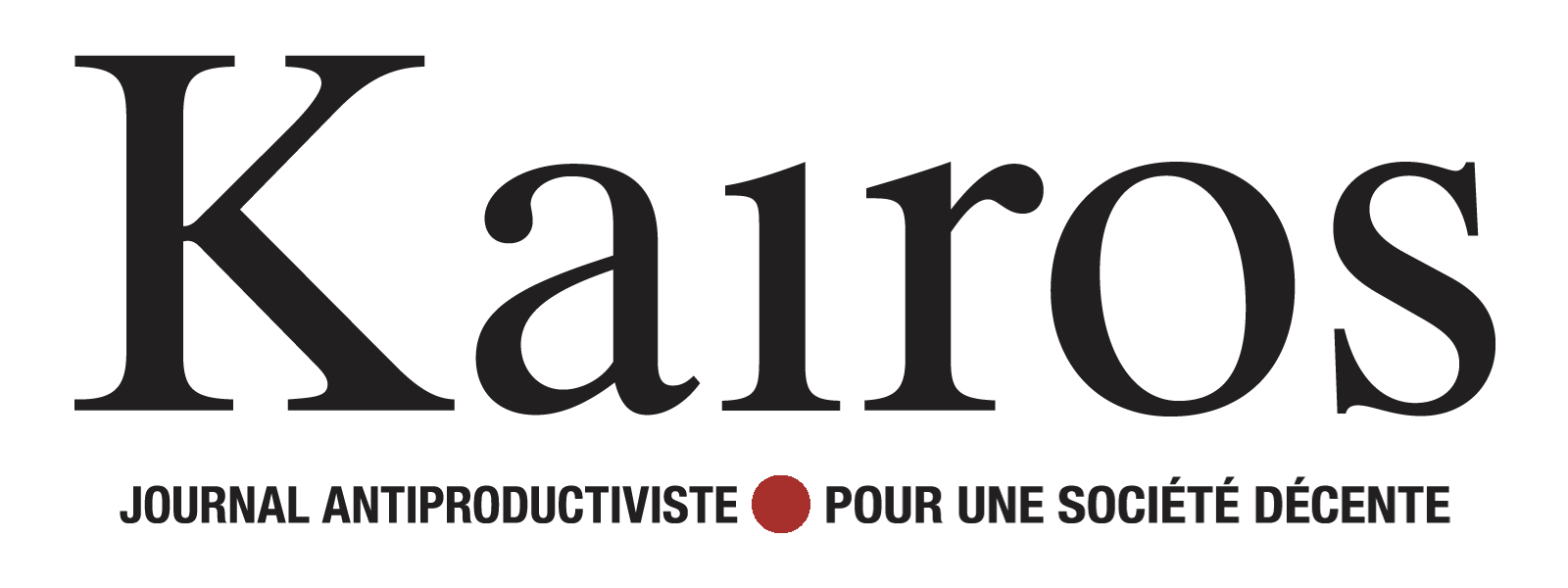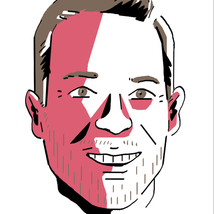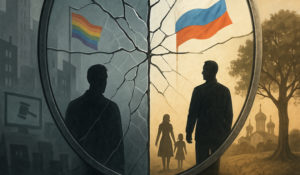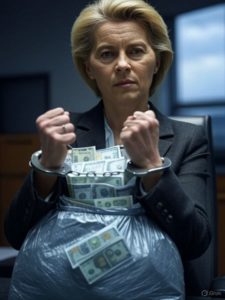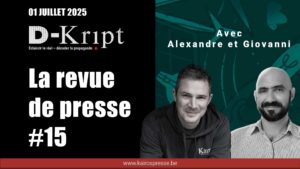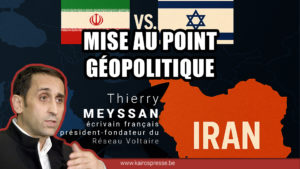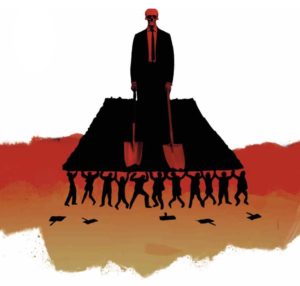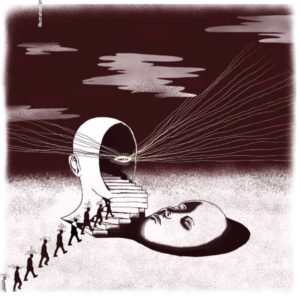État des luttes (2)*
Depuis bientôt trois ans, en matière de conscience politique et de constitution de nouveaux liens sociaux, nous avons assisté à quelque chose d’assez exceptionnel, qui donne de l’espoir sur les possibilités de changement réel de société(1). L’événement Covid a en effet joué, malgré lui, un rôle de levier politique permettant une prise de conscience qui s’est faite concomitamment à la destruction de certains mythes qui furent indispensables à un asservissement volontaire durable.
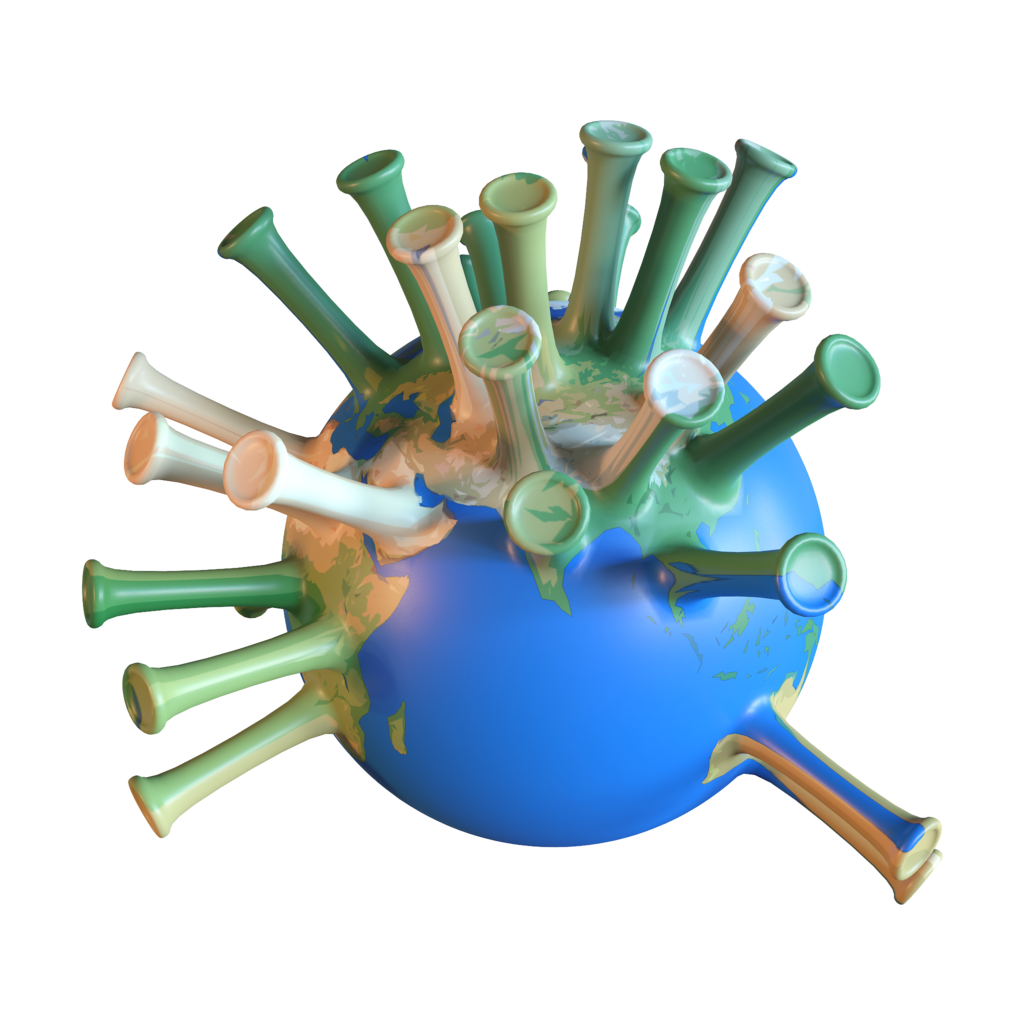
Les principaux mythes qui permirent et permettent encore de maintenir en place notre modèle de société, sont :
- L’État est là pour faire notre bien ;
- Les médias ont pour objectif de nous informer ;
- La médecine allopathique(2) est au service de la santé et du bien-être des gens ;
- Les institutions d’enseignement forment des citoyens ;
- Les gouvernements et multinationales se veulent « verts », soucieux de la biosphère.
S’il est certain que rien ne sera plus comme avant, il n’en est pas moins sûr que ceux qui profitaient le plus de ces illusions collectives mettront tout en œuvre pour pérenniser la soumission de masse que ces illusions assuraient. Covid-19 fut une expérimentation à échelle planétaire, les outils qui furent utiles à sa mise en place seront, et sont déjà, recyclés pour s’appliquer à d’autres domaines, comme la « lutte contre le réchauffement climatique ». Klaus Schwab, mentor des gouvernements (Macron, Trudeau, De Croo, etc.), l’a bien expliqué dans ces différents ouvrages-agendas, dont le fameux Covid-19 : la grande réinitialisation(3).
La division sociale
Le début de l’événement Covid-19 en mars 2020 a sidéré les individus, créant deux groupes se dessinant plus distinctement avec le temps : ceux qui dès le départ, ou par après, n’ont pas été arrimés au discours officiel, et les autres, qui ont accepté l’injection – et parfois celle de leurs enfants, et ont obtempéré sans résistance aux injonctions gouvernementales, les justifiant personnellement s’il le fallait. Pour ces derniers, plus le temps avance, plus le risque de ne jamais admettre la manipulation dont ils ont fait l’objet croît(4) – on peut penser aussi que le temps mis à réaliser le spectacle que constituait Covid-19 est inversement proportionnel au degré de conscience de l’individu avant cette période (soit : plus il était au fait du monde, plus vite il a décroché du narratif officiel du Covid, et vice-versa).
Pour le premier groupe, toutes les illusions énumérées ci-dessus qui aveuglaient encore le sujet ne se sont pas effondrées en même temps, mais étant intrinsèquement liées, comme des dominos, la chute de l’une ne pouvait qu’entraîner celle des autres. Mais ces illusions remplissaient un rôle pour le sujet – comme pour les symptômes dans la névrose –, lui assurant un certain équilibre, précaire mais nécessaire à la vie en société. Cela n’a donc pas été sans effets : leur disparition provoque chez la personne une forme de déséquilibre qui peut, grossièrement, prendre deux formes :
- Une désillusion personnelle, qui peut se manifester par des symptômes dépressifs dus à l’écroulement d’un monde, de cette sortie violente du « Truman show », accentuée par un sentiment d’impuissance ;
- un changement partiel ou complet de vie, ancré sur la certitude révélée que la personne participait auparavant activement au mal que désormais il faut combattre.
Le réveil a été brutal, ce qui explique que certains se perdent encore dans le labyrinthe de la nouvelle conscience retrouvée et aillent piocher ça et là dans toute l’information disponible, ne pouvant toujours distinguer le bon grain de l’ivraie, la caricature parfaite étant celui qui rejettera toute information « officielle » et acquiescera au reste sans vérifier (internet étant aussi à ce niveau une forme de repère infini de désinformation). L’esprit critique, ça se construit avec le temps.
Reste que le Covid a joué comme fédérateur, ferment relationnel qui mettait tous ceux en désaccord d »accord entre eux. La « fin » du narratif Covid a révélé des différences entre les gens, galvanisés qu’ils étaient par la lutte contre l’omniprésence (et omnipotence) covidienne. C’est une bonne chose, on l’ a dit, mais aussi ce qui marque la fragilité de la construction. Car une fois le « grand mal » Covid-19 écarté du quotidien médiatique et politique (du jour au lendemain, dès le début de la guerre en Ukraine), les gens se retrouvent entre eux face à leurs différences. La focalisation sur le Covid avait en effet partiellement occulté qui ils étaient, et qui ils n’étaient pas ; ils découvrent maintenant que l’autre est parfois autrement que ce qu’ils pensaient, souvent idéalisés. La relégation du C‑19 en filigrane de nos vies, outre que de voir disparaître un certain nombre de personnes résistantes, a donc mis au jour des conflits et suscité des passages dépressifs que la suractivité avait mis en suspens. Ce retour de la souffrance individuelle s’est aussi marqué par une cacophonie intellectuelle, où le flux d’informations « nouvelles » (nouvelles pour la personne), crée une confusion globale, la faisant passer du 11 septembre à l’idéologie du genre, en s’arrêtant à l’homme sur la lune et le pouvoir de la finance, sans trop expliquer – et comprendre parfois – chacun de ces points.
On découvre donc que l’autre n’était pas qu’un être réduit à lutter contre la même chose que nous – l’Événement Covid-19 –, qu’il est différent, un tiers. Et c’est justement cette altérité, cette différence, qui tente d’être niée aujourd’hui, l’État voulant nous réduire à des monades interchangeables à volonté, et modifiables au gré des désirs individuels. Tous d’accord, tous Ensemble.
Que faire alors ? Prendre mesure du fait que le changement ne sera possible que si chacun accepte de perdre quelque chose. Que tout cela ne se fera pas sans débat, sans désaccord, sans lutte, car comme le dit Slobodan Despot dans une interview à paraître dans le prochain Kairos(5), « le consensus est un avant-goût de la paix des cimetières ». Nous préfèrerons toutefois nous concentrer sur ce qui nous rapproche plutôt que sur ce qui peut nous séparer.
Ceux qui veulent nous imposer leur monde souhaitent justement que nous nous divisions, perdions notre temps dans des querelles qui nous éloignent du plus important, ils nous veulent aussi tristes, bons sujets « consomacteurs ».
Ne leur faisons pas ce cadeau.
*Cet article est le second d’une série sur l’état des luttes. Retrouvez le premier ici: https://www.kairospresse.be/les-fous-ne-sarreteront-pas/
- Pas de ce changement dans la continuité comme évoquait Pierre Bourdieu, ou changer pour ne rien changer.
- Allopathie : « Par opposition à homéopathie) : Médecine classique, qui a recours à des médicaments qui ont l’effet contraire de la maladie à traiter » (Déf. Antidote).
- https://www.kairospresse.be/pandemie-et-meilleur-des-mondes-de-klaus-schwab/
- Le paradoxe étant que celui qui est le plus apte à reconnaitre qu’il a été manipulé est celui qui est aussi le moins manipulable.
- Le 16 février en librairie.
